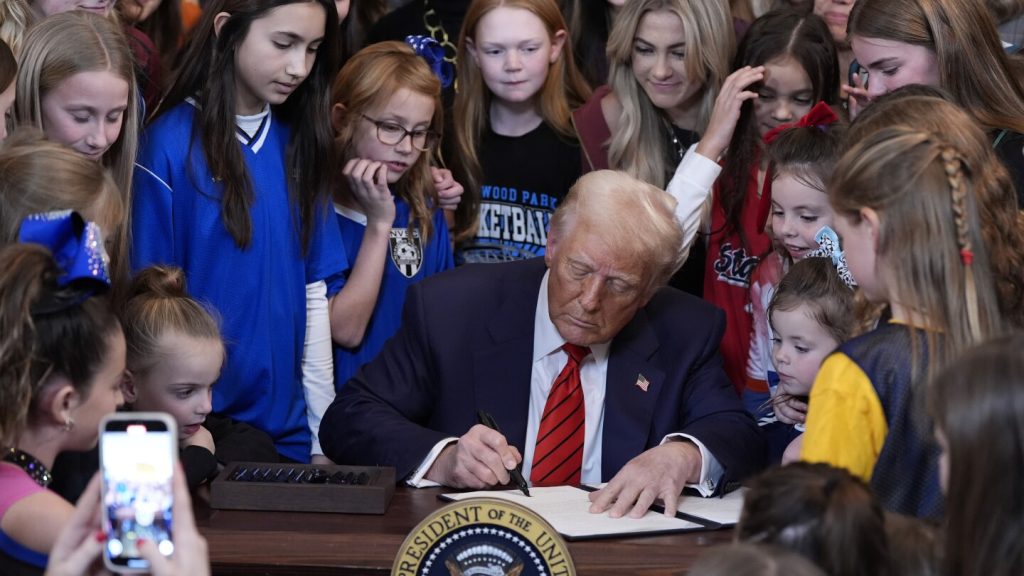Federal Government Withdraws Support for Transgender Minors in Healthcare Ban Case
In a significant shift in federal policy, the Trump administration has announced that it will no longer support transgender minors and their families in Tennessee who are challenging a state law banning gender-affirming care. This decision, communicated to the Supreme Court on Friday, marks a reversal of the Biden administration’s earlier stance, which had argued that such bans constitute unconstitutional sex discrimination. The Tennessee law, known as SB1, prohibits healthcare providers from prescribing puberty blockers or hormone treatments to minors seeking to transition genders. Similar laws have been enacted in about half of U.S. states, sparking nationwide debates over transgender rights, medical autonomy, and states’ authority to regulate healthcare.
The Trump administration’s decision comes amid a broader push by the president to roll back protections for transgender individuals. Shortly after returning to office, Trump signed an executive order halting federal support for gender-affirming healthcare for people under the age of 19. This move aligns with his administration’s efforts to define sex as an unchangeable characteristic, restrict transgender participation in women’s sports, and limit how schools teach about gender. The federal government’s withdrawal from the Tennessee case reflects this administration’s stance that such bans are constitutional and do not infringe on equal protection rights.
The Tennessee Law and Its National Implications
The Tennessee law, SB1, is part of a wave of state-level legislation targeting gender-affirming care for minors. These laws argue that such treatments are too drastic for young people and that decisions about transitioning should wait until adulthood. Supporters of the bans, including many Republican lawmakers, claim they are protecting children from irreversible medical interventions. However, major medical organizations, including the American Medical Association and the American Academy of Pediatrics, have consistently supported gender-affirming care as evidence-based and medically necessary for transgender youth.
The federal government’s withdrawal from the Tennessee case is particularly significant because it signals a shift in how the executive branch views these bans. Under President Biden, the Department of Justice had argued that restricting access to gender-affirming care for transgender minors violated Title IX, which prohibits sex discrimination in education, and could have broader implications for transgender adults. Now, the Trump administration has reversed this position, stating in a letter to the Supreme Court that SB1 does not deny equal protection under the law.
A Shift in Federal Stance: From Support to Withdrawal
The Biden administration’s decision to intervene in the Tennessee case had been seen as a crucial step in defending transgender rights. By challenging SB1, the federal government was not only supporting the rights of transgender minors but also warning that allowing such bans could set a precedent for restricting the rights of transgender adults. The administration argued that the Constitution’s guarantee of equal protection applies to transgender individuals and that laws targeting them based on their gender identity are discriminatory.
However, the Trump administration’s reversal means the federal government will no longer advocate for transgender minors in this case. Deputy Solicitor General Curtis Gannon stated in a letter to the court that the new administration believes SB1 does not violate equal protection principles. While the justices are encouraged to proceed with the case to avoid unnecessary delays, the federal government’s withdrawal leaves the families challenging the law without its support.
Legal and Political Fallout: Reactions and Implications
The Trump administration’s move has drawn sharp criticism from LGBTQ+ advocacy groups, who argue that it is part of a larger effort to marginalize transgender individuals. Lawyers for the families involved in the case, represented by organizations like Lambda Legal and the American Civil Liberties Union (ACLU), condemned the decision as discriminatory. They emphasized that the federal government’s withdrawal sends a harmful message and undermines the rights of transgender youth. These groups have long argued that gender-affirming care is a critical component of healthcare for transgender minors and that bans on such care are rooted in prejudice rather than science.
The case also highlights the ongoing polarization over transgender rights in the U.S. While some states continue to pass laws restricting transgender healthcare and participation in sports, others have enacted policies to protect and expand these rights. The Supreme Court’s decision in the Tennessee case could have far-reaching consequences, potentially setting a national precedent for how states regulate gender-affirming care for minors. A decision is expected by early summer, and the outcome could shape the trajectory of transgender rights for years to come.
Conclusion: A Pivotal Moment for Transgender Rights
The federal government’s withdrawal of support for transgender minors in the Tennessee case reflects a broader cultural and political struggle over the rights of transgender individuals. The Trump administration’s actions, including executive orders and legal filings, demonstrate a clear effort to roll back protections for transgender people and redefine sex as an unchangeable characteristic. These moves are part of a larger push by conservative lawmakers and activists to limit the rights of transgender individuals, particularly in areas like healthcare, education, and sports.
For transgender minors and their families, the stakes could not be higher. Gender-affirming care is a lifeline for many young people struggling with gender dysphoria, and bans on such care can have profound mental and emotional consequences. Advocates argue that these laws are not only discriminatory but also contrary to established medical guidelines. As the Supreme Court prepares to decide the Tennessee case, the outcome will have far-reaching implications for transgender youth and their access to essential healthcare.
The broader implications of this case extend beyond Tennessee, as similar laws are being challenged in courts across the country. The federal government’s shift in stance underscores the fragility of transgender rights and the ongoing need for advocacy and legal challenges to protect these rights. As the nation watches, the Supreme Court’s decision will serve as a pivotal moment in the fight for transgender equality.












